8 Tips For Apartment Kitchen Sink Backup
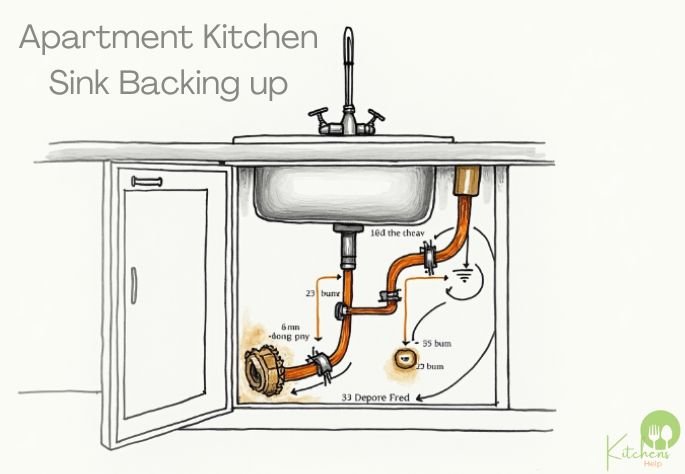
A Kitchen Sink backup can complicate everyday routines, pose cooking challenges, and emit unpleasant odors throughout the home. You can avoid time and hassle by understanding why and how to fix this. This simple guide should help you understand and handle the situation so you can enjoy your kitchen without worry. Therefore, let us immediately commence and explore the perplexing subject of drains, as well as some expert advice to ensure that your sink remains operational.
Signs that your Kitchen Sink backup
Preventing big problems with your plumbing can save you money and avoid a lot of hassle; early detection is critical. Prolonged drainage: When water takes longer than usual to drain, it indicates a backed-up sink. This can be particularly frustrating when you’re trying to wash dishes or prepare meals. Foul smells coming from the sink can mean bits of food and waste are starting to accumulate, which means you’re headed for a clog in your pipes. This smell can be unpleasant and lead to an unhygienic scenario in your kitchen or bathroom.
Sound is another incredible symptom of difficulty—inexplicable gurgling commotions originating from the pipes most likely flag trapped air or potential impediments that might be developing further into the plumbing system. If you ignore these signs, they could escalate into more serious plumbing issues, such as a complete blockage or even a burst pipe, resulting in damage and costly repairs for your home.
It is crucial to investigate these indicators and promptly eliminate any abnormality in Alexandria to avert plumbing disasters and ensure proper sink operation. To catch these issues early on, ensure regular maintenance, like cleaning your drains and avoiding what goes down them, along with periodic inspections of your plumbing system. A little vigilance can go a long way, saving you hassle, time, and money when it comes to plumbing in the future.
Possible causes of Kitchen Sink backup in apartments
To avoid plumbing problems later, you must know what caused a blockage. In apartment settings, kitchen sink backup often occurs due to a combination of factors:
- Food remains: If you continue throwing food particles in the pipes, there can be a substantial blockage over time. Scrape thirds—spitting odds and ends of leftovers from plates directly into the sink—can coagulate together to form a stubborn wall that impedes water flow. It is necessary to clean out the sink and dispose of food residues effectively and periodically.
- Grease accumulation: While it may seem like pouring grease down the drain is the simplest option, this contributes to severe problems. Grease cools, solidifies, and sticks to your pipes’ walls, creating a sticky wall that will catch other debris until it causes a backup. To avoid this, always allow grease to cool and throw it in the trash instead of down the sink.
- Foreign objects: Minor bits that drop into the sink inadvertently can cause unanticipated clogs. Things like utensils, bottle tops, or even food wrappings can block the piping. Keeping track of what goes into the sink and utilizing a filter that captures these items can prevent them from causing problems.
Knowing these reasons, you can proactively protect your plumbing from any effort resulting in a clogged kitchen sink.
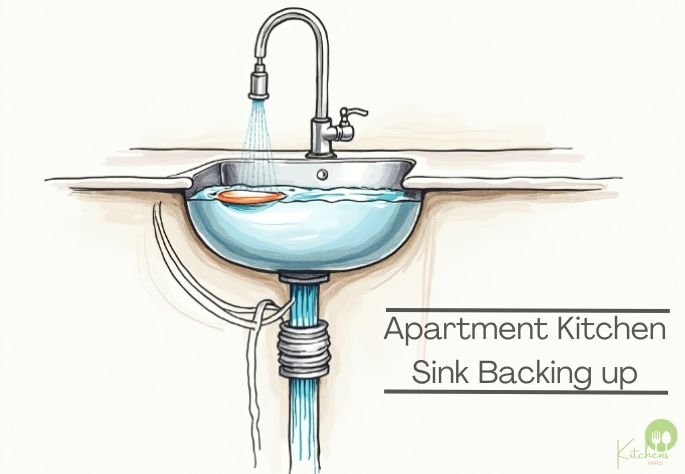
Immediate steps to take when your kitchen sink is Sink backup
Before you reach for your phone and call a plumber, there are some first steps you can attempt that might just sort the problem—and save you time and money:
- Do not use the sink: This is an important one to follow; do not turn on the running water or activate the disposal for any reason right away. This prevents additional layers from piling up and also stops making the problem worse so that you can face it better.
- Clear visible debris: Wear gloves and slowly remove any weak contaminants from the sink. These may be leftover food, hairs, or other things that clog the drain. You can remove these to reduce drain stress.
- Try pouring boiling water down the drain to effectively remove minor grease buildup. The heat can also dissolve fatty materials that could be blocking the pipelines. Take your time and apply the heat gradually over a period of two weeks to allow it to take effect.
This is how you can fix the problem without needing professional assistance. But if you continue experiencing the problem, call a plumber for better assistance.
When to Call a Professional Plumber
Though there are many simple problems that you can solve yourself, it is always best to find a professional when something has gone wrong. If you see water gushing from sinks or toilets when they should be dry, if apartment drains are off at the same time, or if you have a recurring problem that won’t go away despite your best efforts, call a plumber.
One high-rise apartment renter related a memorable horror story, telling how a simple backup in her bathroom sink turned into her worst nightmare when water seeped three floors into adjoining units, causing ample damage. After years had elapsed, she had no other choice; her belongings had vanished, disrupting the lives of many in the same building. This case serves as a reminder of the rapid escalation of minor plumbing issues.
This demonstrates why quick and expert help can avert expensive damage while keeping your house safe and settled. Ignoring plumbing issues can lead to more serious issues like mold development, foundational damage, and health risks, so it’s crucial to act quickly and take all necessary precautions. In short, if you have any doubts, don’t be afraid to call the pros—they see emergencies all day and know how to manage them efficiently.
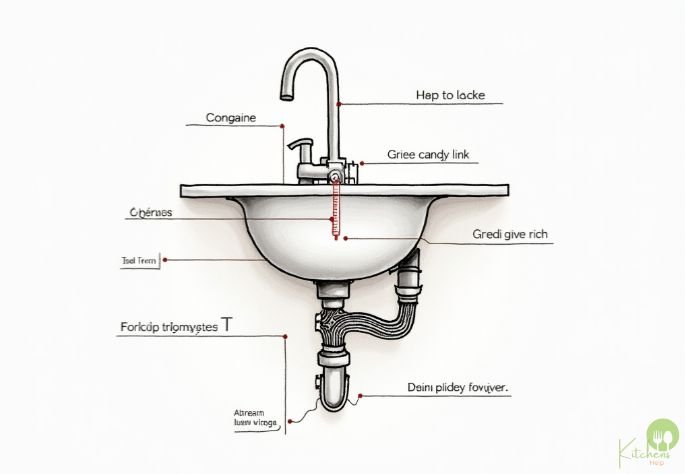
Preventive measures to avoid Kitchen Sink backup
While prevention is always the best cure, having a clogged kitchen sink is a challenging task to live with. Whenever possible, take some preventative steps that will help keep your sink operating the way it should:
- Keep trash out of the drain. Never pour grease, oil, or coffee grounds down the sink because they can harden over time and clog drains. Instead, start using garbage cans or compost bins for trash and leftovers. Make it a point to establish a simplified disposal routine so your kitchen waste does not end up in the wrong place.
- Pipes must be cleaned consistently for them to function correctly. Due to their natural properties, a monthly mixture of baking soda and vinegar can effectively dissolve rust in pipes. For example, you only need to pour half a cup of baking soda and then half a cup of vinegar down the drain, let it sit for 30 minutes, and rinse with hot water to cleanse thoroughly.
- Dodge food bits down the drain: A mesh drain filter is a simple way to prevent tiny pieces of food from slipping into your pipes. These strainers work as blockages, trapping residual pieces from your dishes and letting water flow through. Clean the strainer frequently, as it can become clogged, resulting in overflow.
How to Unclog the Sink Yourself (DIY Methods)
Unclogging a sink can be a satisfying task for those who prefer hands-on solutions; it not only makes you feel accomplished but also saves you the hassle of calling someone for household help. Easy solution— A DIY enthusiast recently used these effective methods to share his success stories.
- Plunger: Make sure there is enough water in the sink to submerge the plunger’s cup; this will help create a suction seal. Place the plunger directly on the drain and seal tightly around it. Grip tightly and plunge vigorously up and down while holding the seal until you feel the clog begin to give. Surprisingly, this is usually the first step and works on most small blockages.
- Eco-friendly options: If you want to go green, use baking soda and vinegar to clean your sink. To do this, pour half a cup of baking soda into the drain, then add half a cup of vinegar. Cove the drain with a cloth or plug to avoid the reaction gushing out. Leave it for 15 minutes to allow the bubbling action to work through the blockage. Then, pour boiling water down the drain to wash away any traces of the blockage. At the same time, this method is practical and safe for your plumbing.
- Drain snake: If the blockage is stubborn, a drain snake is your best option. The plumber’s snake, a nifty device, penetrates deeper into the plumbing to reach clogs that a plunger cannot reach. Slowly slide the snake down into the drain while turning it as you work further inside. If you encounter resistance, it’s likely a clog; continue to twist and pull to break it up and remove it.
These tips will clear your sink and make you feel like a DIY superstar!
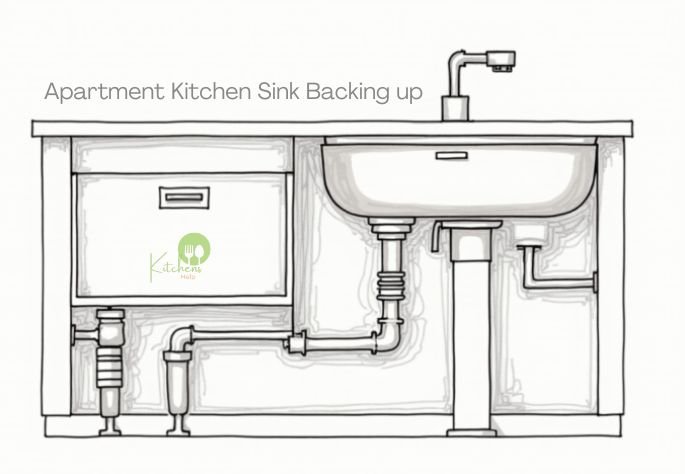
Cost of Plumbing Services for Kitchen Sink Issues
While hiring a professional may appear to be an expensive venture at first glance, having expert help will save you from even greater expenses in the future. For instance, plumbing services for an average kitchen sink backup may cost anywhere from $100 to $300, depending on where you live and how complicated the problem is. It’s a decent chunk to cough up initially, but consider the other side. Resolving plumbing problems early helps keep your home safe from extensive damage and avoids emergencies requiring expensive repairs. Taking preventative action can shield your property from problems and prevent you from facing a plumbing system headache or a costly bill.

How to Report the Issue to Your Landlord or Property Manager
If you live in an apartment, inform your landlord or property management about any plumbing issues immediately so they can solve them before the problem worsens. When it comes to a slow drain, clogged kitchen sink, or leaky pipe, the more information you provide about your plumbing issue, the faster they can fix it. Keep written records of your attempts to solve the issue. Whether you are attempting to clear a blockage or deploying a plunger, it is crucial to document your actions, as this will provide a timeline and demonstrate your commitment to resolving the issue.
While prompt reporting helps address the plumbing issue as soon as possible, it also ensures there is no argument regarding who to blame if any damage occurs. So, for example, if a leak goes unreported and results in water damage to the property, there could be disputes over whether you are responsible for repairing the damage or not.
These tips will assist you in resolving plumbing issues, such as a clogged kitchen sink, and keeping your apartment plumbing in optimal condition! Remember, DIY is a great temporary solution for minor issues—baking soda and vinegar work wonders on minute clogs—but don’t hesitate to bring in the pros if things spiral out of control or you’re unsure what kind of drain cleaning remedy you require. They have the proper equipment and knowledge to deal with more complicated plumbing problems safely, efficiently, and effectively.
Do not forget to keep up with sink maintenance—it will help you save your home from damage and also let you cook without any trouble. Be on the lookout for red flags like unusual sounds, sluggish drainage, or unpleasant smells—and resolve issues right away. If you want to learn more about keeping your kitchen clear and healthy plumbing, make sure to subscribe for our regular tips, news, and advice suited to renters just like you!
CONCLUSION
It is not only more convenient to have the kitchen sink in your apartment flow properly, but it is also essential for a harmonious home. Now that you know what causes a sink to back up, you have the power within yourself to move quickly and maintain your kitchen as a living space. Keep your sink like the heart of the kitchen–keep it healthy, and the whole household flow will work smoothly. Let us shine the light of clarity on this simple concept — solve minor problems before they become larger than life. So take it from me: a happy home life can be as easy as cleaning pipes!
Frequently Asked Questions
Food particles, grease, and hair can clog pipes. However, backups can be avoided by cleaning your sink regularly and not pouring grease down the drain.
Use a plunger to loosen the blockage. If that doesn't work, combining baking soda and vinegar will occasionally break up whatever is clogging it.
Chemical cleaners are very harsh on pipes and the environment. So, it is preferred to attempt the herbal technique, which includes baking soda and Vinegar, or with a drain snake.
Place a drain strainer to collect food and debris, and clean up the drain from time to time with hot water and vinegar. No grease and throwaway coffee grounds down the sink
When these home remedies don't help or if you notice a bad odor or gurgling noises, you will need intricate cleaning not to cause more damage.
Related Posts
-
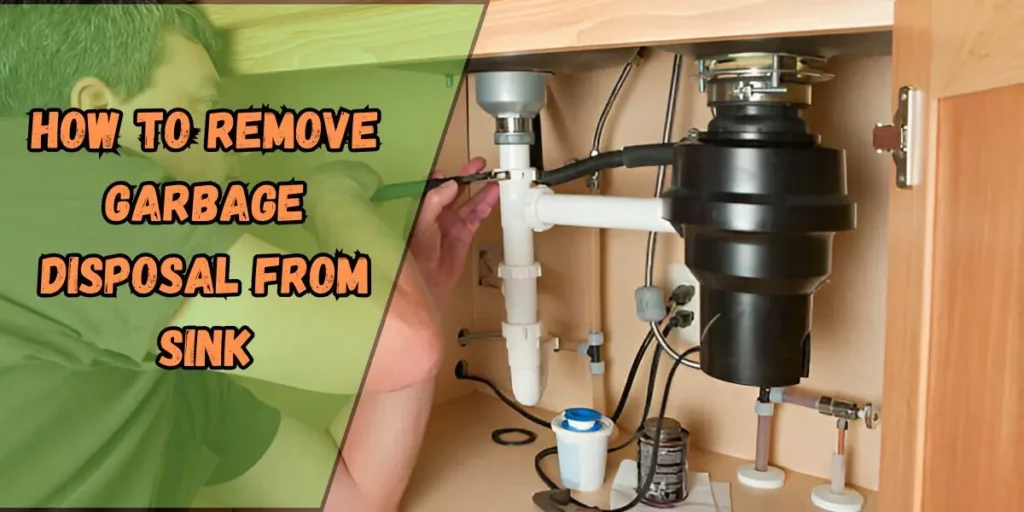 03 Jan 2025 SinkLearn How to Remove Garbage Disposal From Sink 2025
03 Jan 2025 SinkLearn How to Remove Garbage Disposal From Sink 2025 -
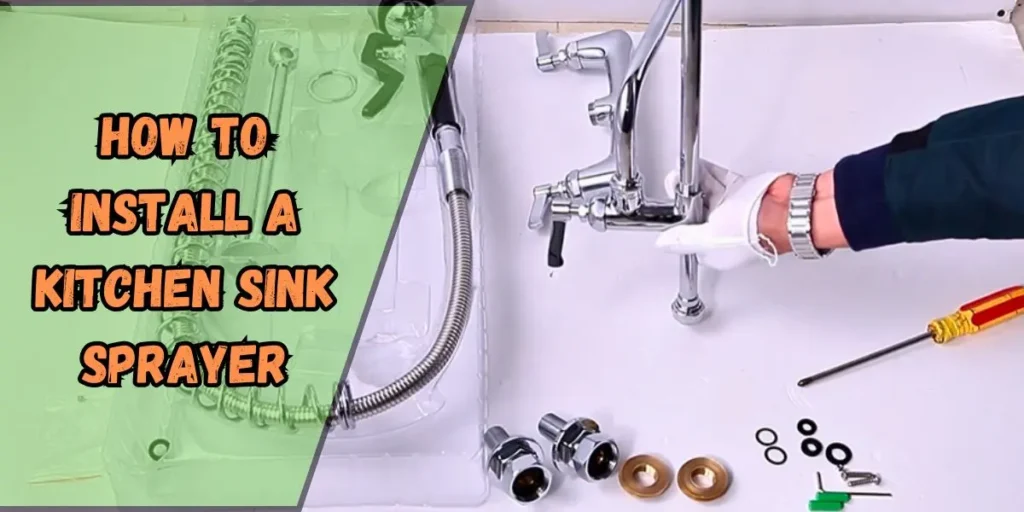 03 Jan 2025 SinkHow to Install a Kitchen Sink Sprayer in Simple Steps 2025
03 Jan 2025 SinkHow to Install a Kitchen Sink Sprayer in Simple Steps 2025 -
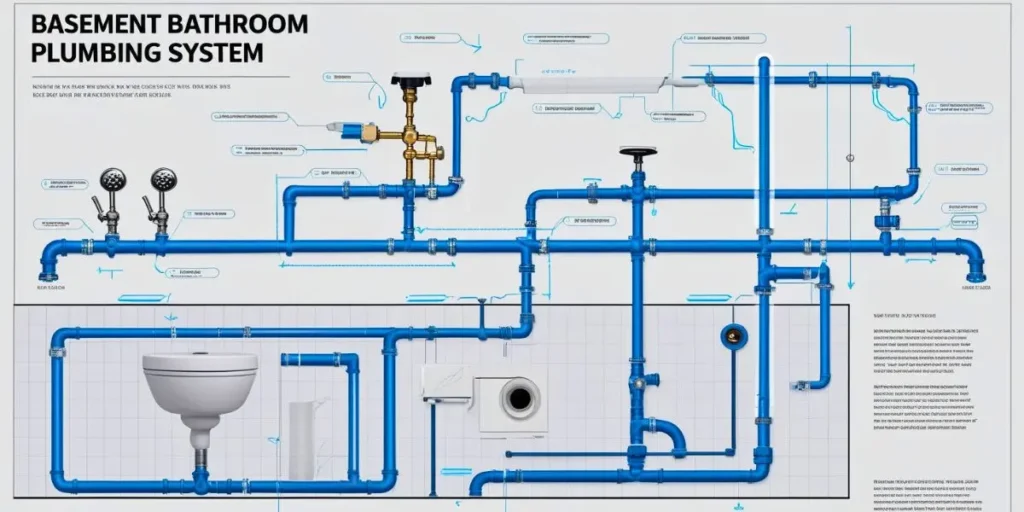 30 Dec 2024 RemodelSimple & Effective: Basement Bathroom Plumbing Diagram
30 Dec 2024 RemodelSimple & Effective: Basement Bathroom Plumbing Diagram -
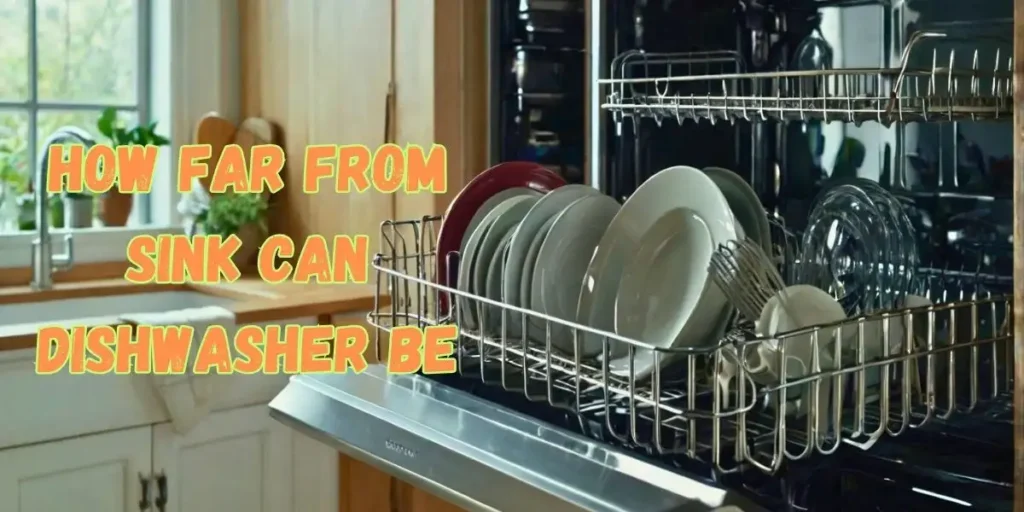 30 Dec 2024 SinkHow Far from Sink Can Dishwasher Be? Key Facts Explained
30 Dec 2024 SinkHow Far from Sink Can Dishwasher Be? Key Facts Explained -
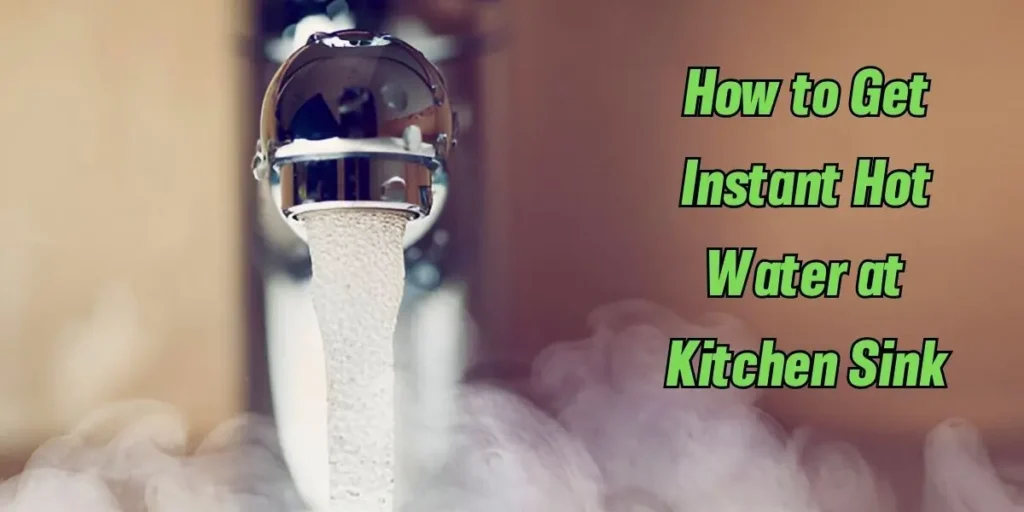 29 Dec 2024 SinkHow to Get Instant Hot Water at Kitchen Sink
29 Dec 2024 SinkHow to Get Instant Hot Water at Kitchen Sink -
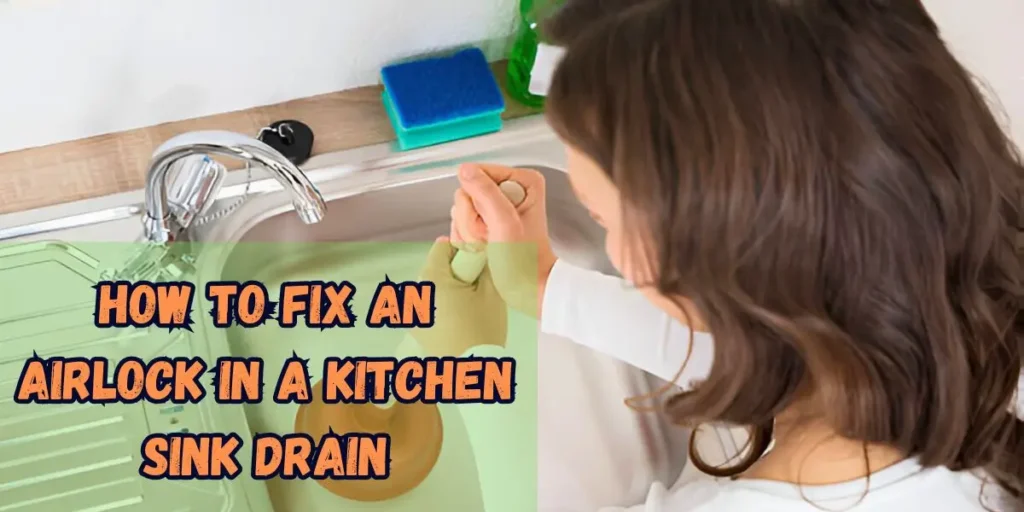 28 Dec 2024 SinkHow to Fix an Airlock in a Kitchen Sink Drain: A Step-by-Step Guide
28 Dec 2024 SinkHow to Fix an Airlock in a Kitchen Sink Drain: A Step-by-Step Guide -
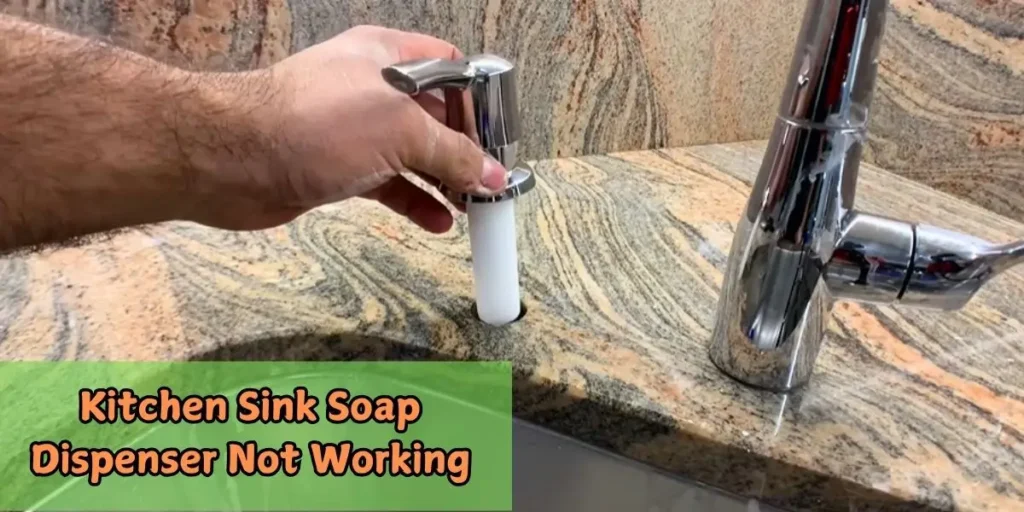 27 Dec 2024 SinkKitchen Sink Soap Dispenser Not Working? Here’s How to Fix It
27 Dec 2024 SinkKitchen Sink Soap Dispenser Not Working? Here’s How to Fix It -
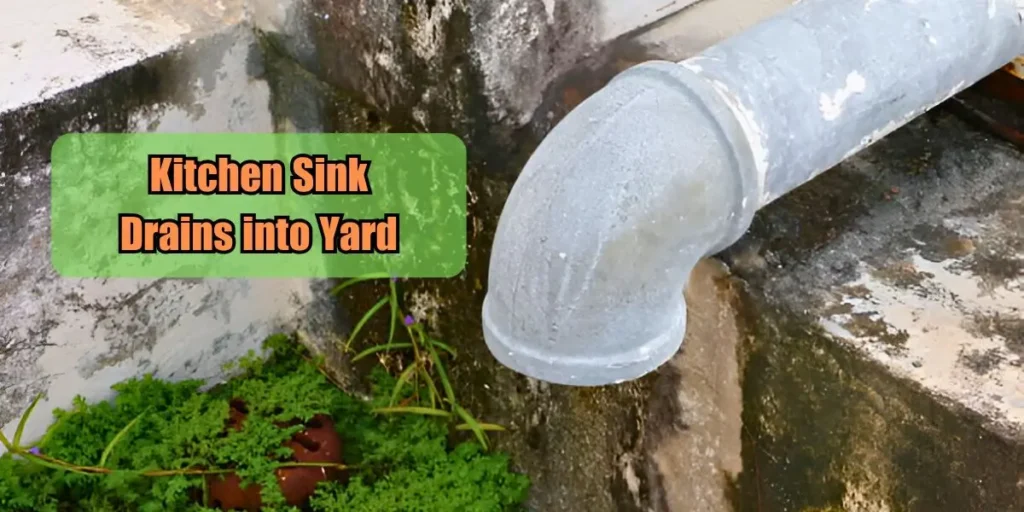 26 Dec 2024 SinkKitchen Sink Drains into Yard: Causes, Solutions
26 Dec 2024 SinkKitchen Sink Drains into Yard: Causes, Solutions -
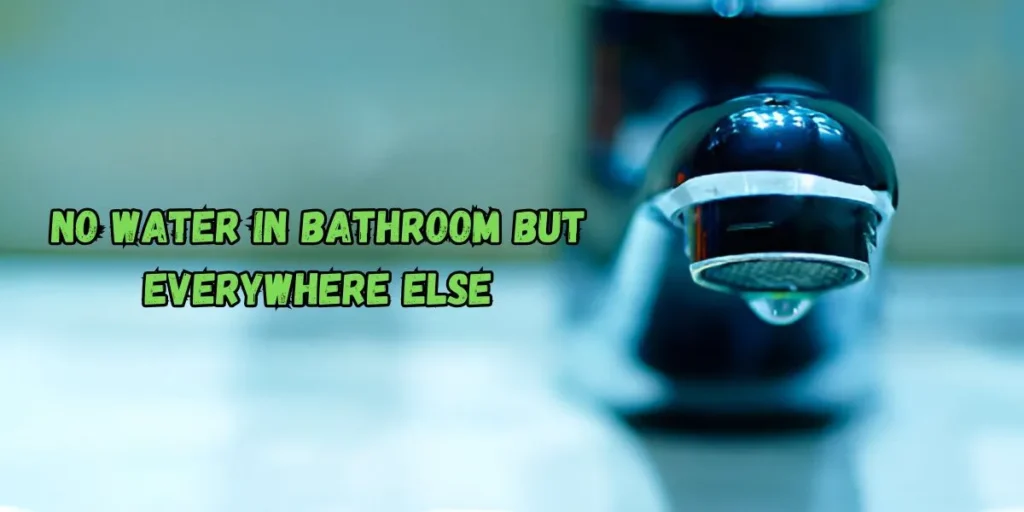 26 Dec 2024 SinkNo Water in Bathroom but Everywhere Else: Expert's Solutions
26 Dec 2024 SinkNo Water in Bathroom but Everywhere Else: Expert's Solutions -
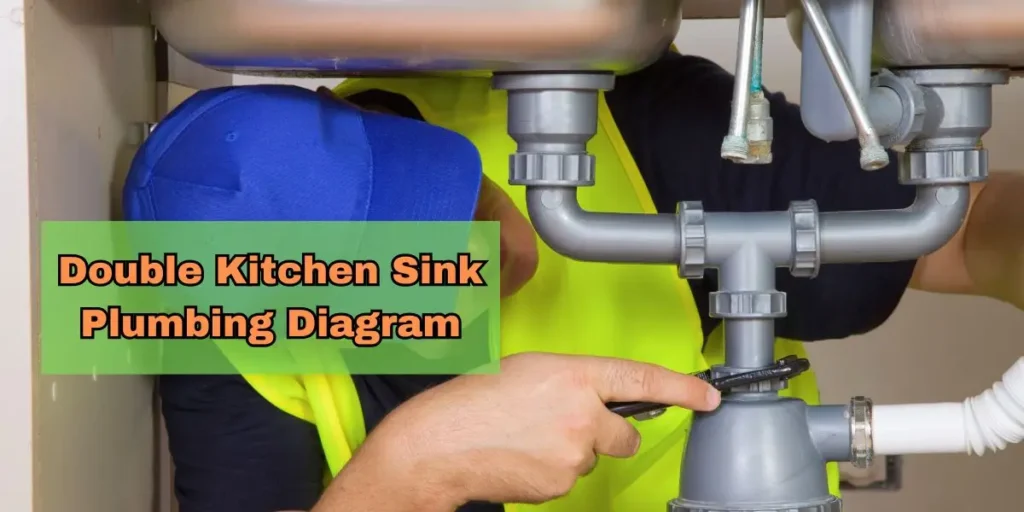 26 Dec 2024 SinkDouble Kitchen Sink Plumbing Diagram: A Visual Guide
26 Dec 2024 SinkDouble Kitchen Sink Plumbing Diagram: A Visual Guide

